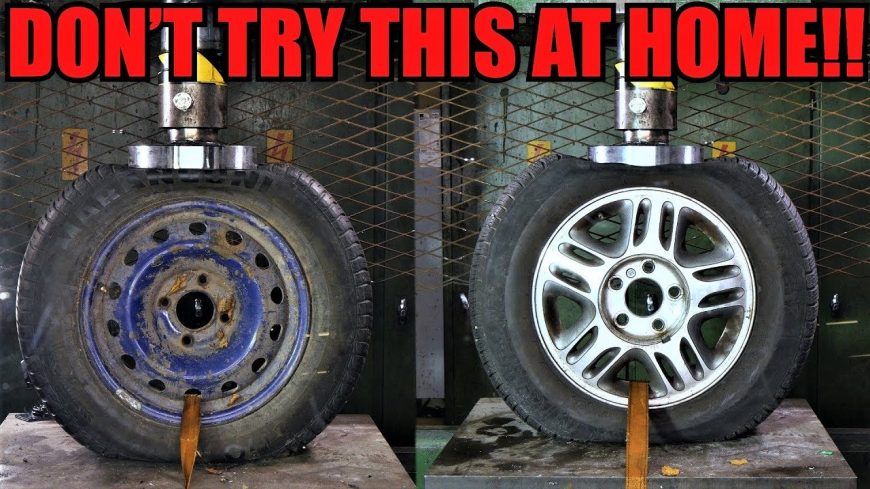Hydraulic Press Puts Steel Wheels Against Alloy Wheels

When purchasing a vehicle, sometimes, the option for alloy wheels will be brought to the table. For those who decline this option, they would more than likely than not receive factory steel wheels with hubcaps.
When most approach the option, we’d think their thought process probably has a lot to do with the look of the vehicle. Obviously going from a basic money-saving option to something fancier is going to transform a vehicle’s appearance.
However, beyond that, there are other advantages to certain wheels. Some of these advantages might not make an impact on an average commuter car. Most vehicles, in fact, will have a relatively easy life and the owner will notice very few functional differences between alloy wheels and steel wheels. Their level of structural integrity might have the off chance of becoming apparent if the driver is prone to running over curbs.
Alloy wheels are more likely than not going to be a lighter option than steel wheels. In regular driving, we would be inclined to think that this would be a negligible difference. However, with something like racing, the weight of the wheel could make a big difference in how quick the car accelerates
This time, the goal in question is to check out proof of the former. Could different wheels really be able to stand up to that much more abuse? In this simple task, we find that the Hydraulic Press Channel takes their instrument of choice to both of the wheels. From there, they use the hydraulic press to measure how much force each application can take.
We’re not sure if this will ever have any real practical implications. However, we find that it’s still a pretty neat test to watch. Let’s just say that one of these candidates was a lot more willing to stand up to the challenge than the other.

